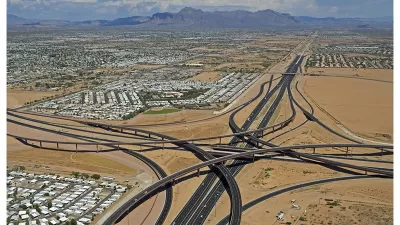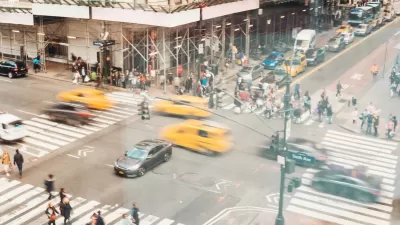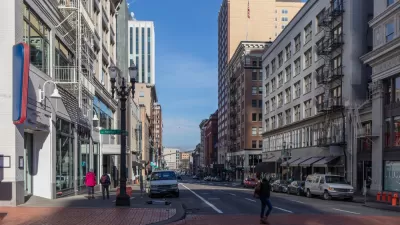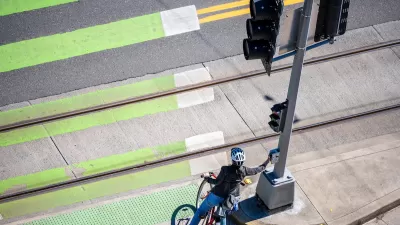"With this campaign, we’re making clear that zero is the only acceptable number of deaths on our roads."

The U.S. Department of Transportation announced October 5 that it has committed $1 million a year for the next three years to a national Vision Zero program.
The campaign relies on a large coalition of safety advocates, data and behavioral scientists, community planners, policy analysts, and officials at all levels government.
Though a target date to reach zero traffic deaths nationwide is not specified, the plan identifies short-term actions in the service of long-term goals. From the press release:
Our short-term focus is to promote innovative strategies that save lives over the next three to five years. Those strategies include improving seat belt use and motorcycle helmet; redesigning streets; truck safety; and leading driver behavioral change campaigns.
In the long term, our efforts will focus on overall system design, new vehicle technology, enforcement, and behavioral safety. With the rapid introduction of automated vehicle technologies that may prove to be a road safety game changer, our goal of zero deaths is achievable in our lifetimes.
The DOT will also be awarding competitive grants to national organizations to implement “innovative strategies” to reduce traffic deaths.
FULL STORY: Moving Forward on the Road to Zero Traffic Fatalities

Planetizen Federal Action Tracker
A weekly monitor of how Trump’s orders and actions are impacting planners and planning in America.

San Francisco's School District Spent $105M To Build Affordable Housing for Teachers — And That's Just the Beginning
SFUSD joins a growing list of school districts using their land holdings to address housing affordability challenges faced by their own employees.

The Tiny, Adorable $7,000 Car Turning Japan Onto EVs
The single seat Mibot charges from a regular plug as quickly as an iPad, and is about half the price of an average EV.

Seattle's Plan for Adopting Driverless Cars
Equity, safety, accessibility and affordability are front of mind as the city prepares for robotaxis and other autonomous vehicles.

As Trump Phases Out FEMA, Is It Time to Flee the Floodplains?
With less federal funding available for disaster relief efforts, the need to relocate at-risk communities is more urgent than ever.

With Protected Lanes, 460% More People Commute by Bike
For those needing more ammo, more data proving what we already knew is here.
Urban Design for Planners 1: Software Tools
This six-course series explores essential urban design concepts using open source software and equips planners with the tools they need to participate fully in the urban design process.
Planning for Universal Design
Learn the tools for implementing Universal Design in planning regulations.
Smith Gee Studio
City of Charlotte
City of Camden Redevelopment Agency
City of Astoria
Transportation Research & Education Center (TREC) at Portland State University
US High Speed Rail Association
City of Camden Redevelopment Agency
Municipality of Princeton (NJ)





























